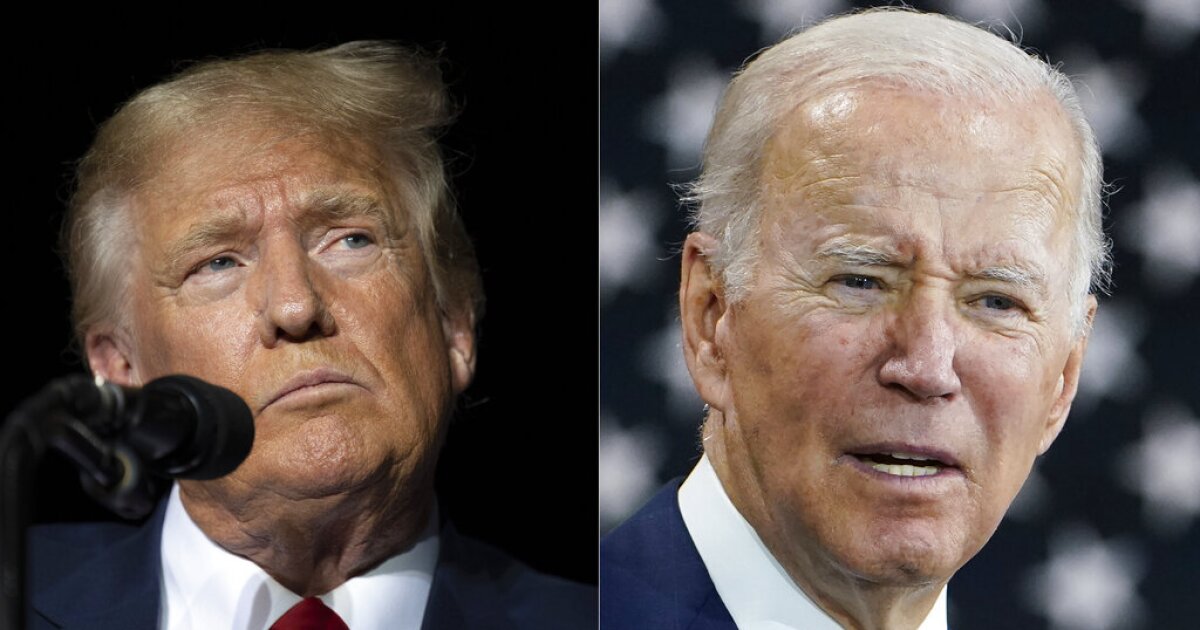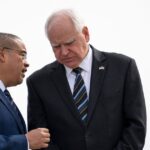

Those who seek to fix the intelligence community’s overclassification problem see opportunities for reform after the discovery of classified records that were retained by former President Donald Trump and President Joe Biden.
The Justice Department and the Office of the Director of National Intelligence thus far haven’t weighed in on the existence of any damage assessment on Biden’s classified documents despite both agencies repeatedly discussing the Mar-a-Lago risk review last year. Both the DOJ and the ODNI have pointed to the special counsel investigations into Trump and Biden as a major reason why they haven’t been forthcoming.
BIDEN WON’T COMMIT TO SPEAKING WITH SPECIAL COUNSEL ABOUT CLASSIFIED DOCUMENTS SCANDAL
The LBJ Presidential Library, schools and centers at the University of Texas, and the Public Interest Declassification Board teamed up to host a two-day event on “America’s Secrets: Classified Information and Our Democracy.”
Director of National Intelligence Avril Haines, who is under fire from Democrats and Republicans on the Senate Intelligence Committee for declining to share details about the Trump and Biden classified documents sagas, delivered a keynote address on Thursday, where she acknowledged overclassification was a big problem. Sen. John Cornyn (R-TX), a member of the Senate Intelligence Committee, delivered a keynote the next day, where he also said overclassification inside the intelligence community was a serious problem.
Members of the Senate Intelligence Committee slammed Haines’s unwillingness to provide details on or give them access to the classified documents that were found in Trump and Biden’s possession following an “unacceptable” briefing by the DNI last week.
During the briefing, Haines pointed to the special counsel investigations on Trump and Biden as a reason why she couldn’t provide more details. She sidestepped this controversy the following day, however, when she spoke about overclassification.
“This is an urgent challenge to solve, because first, overclassification undermines critical democratic objectives such as increasing transparency to promote an informed citizenry and greater accountability,” Haines said Thursday. “And second, overclassification undermines the basic trust that the public has in its government. And third, overclassification negatively impacts national security because it increases the challenges associated with sharing information that should not be classified or at least not classified at the level the information is classified at.”
Haines pointed to investigations on overclassification that cited “organizational and structural barriers, but also cultural issues that make this much more difficult,” including the fact that “there are virtually no incentives in our bureaucracy to declassify or to refrain from classifying a document, but there are plenty of incentives to classify.”
Cornyn said Friday that “there’s no doubt in my mind that overclassification is a problem.” The senator indicated several challenges, including “overclassification” and “the fact that there are a lot of people, probably too many people, who can authorize the classification of documents,” and he also pointed to the need to reform the “declassification process.”
“This could not be a more timely discussion, given everything that is going on. … But it also, I think, perhaps will lead to what I consider to be some important debates and discussions and potential reforms of the classification system,” Cornyn said, adding, “I just think we have to be a little more nimble: No. 1, not overclassify, and No. 2, once the need to classify goes away, find a way to put that in the public domain. I know that is easier said than done.”
Oona Hathaway, a Yale University law professor and a former Pentagon special counsel, also said in January that overclassification was a serious problem.
CLICK HERE TO READ MORE FROM THE WASHINGTON EXAMINER
“There are a lot of reasons we should care. Probably the first one is that when a document is classified, it means that people in government who have access to that information really can’t talk about it. They can’t tell the American people what they know. They can’t explain it. American people can’t see it,” Hathaway told NPR. “And so it makes it very difficult for the American people to know what their government is doing when that information is classified.”
Biden’s personal attorneys said they first discovered classified documents in early November at the Penn Biden Center in Washington. Biden’s lawyers have since found more classified documents at the president’s home in Wilmington, Delaware, in December and January, and the DOJ found more when it conducted its own search last month.






